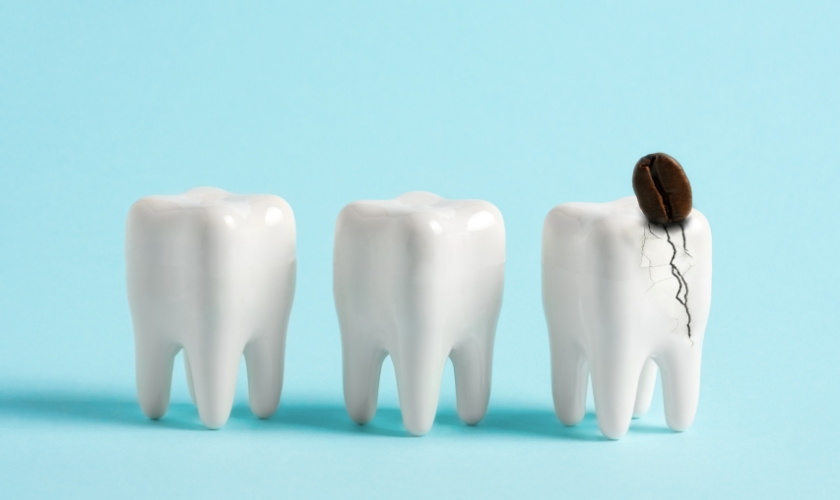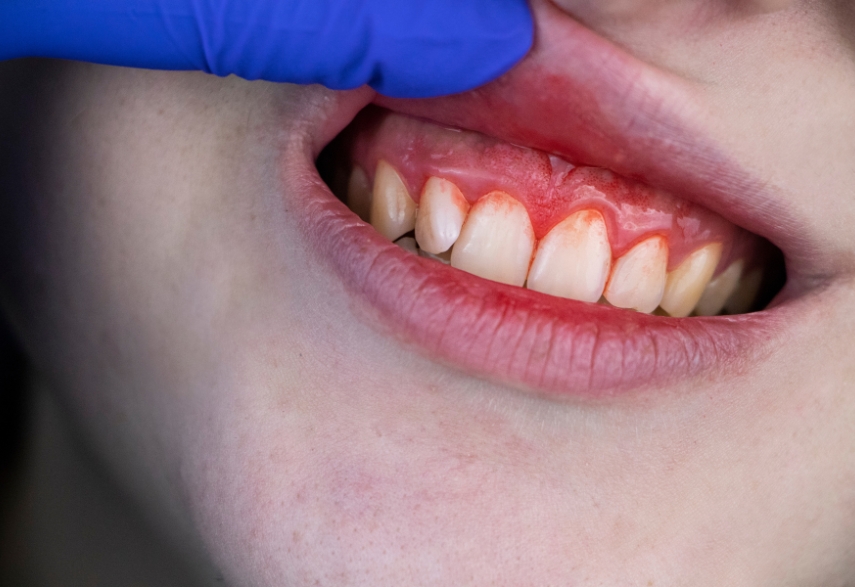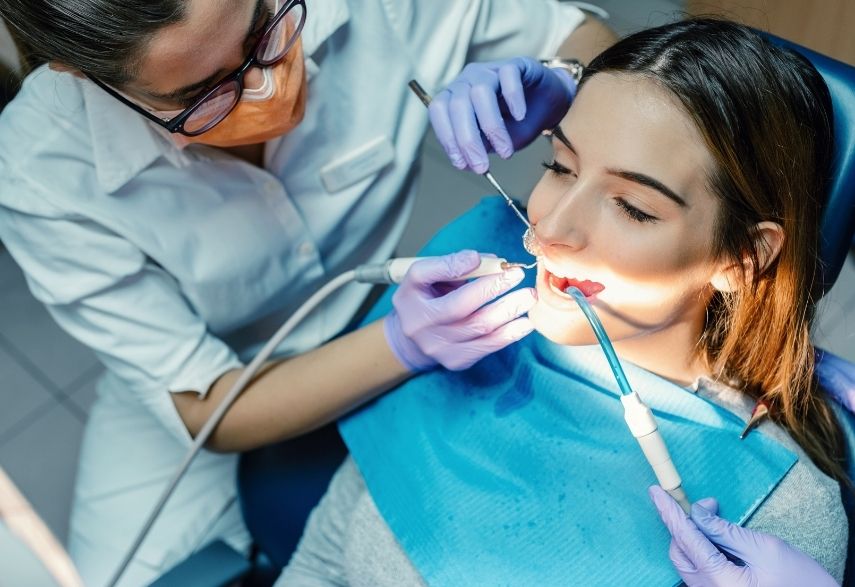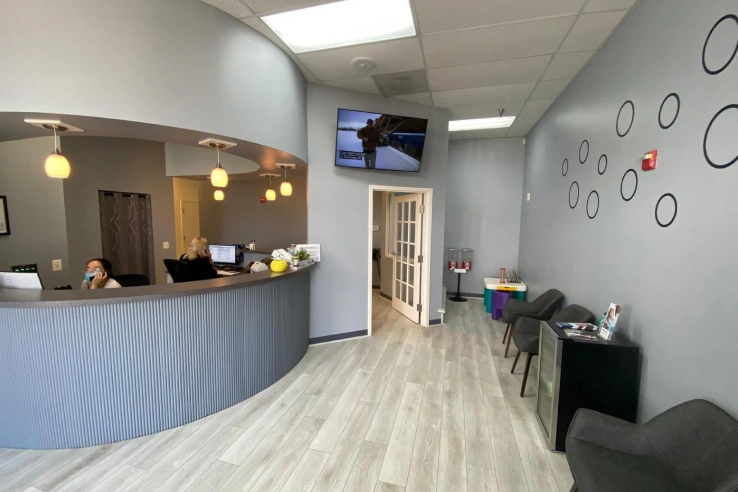We are not a registered Medicare/Medicaid Provider

Have you ever experienced a sudden toothache or dental problem that left you in excruciating pain? If yes, then you know how frustrating and unbearable it can be to wait for relief. Dental emergencies can occur at any moment, leaving us helpless and unable to perform our daily activities. In such situations, seeking emergency dental care becomes imperative. Waiting for the problem to resolve on its own is not an option when it comes to dental emergencies. In this post, we will discuss why waiting for relief is not an option and the importance of seeking prompt emergency dental care when faced with a sudden oral health issue.
What is Emergency Dental Care?
If you experience a dental emergency, it is important to seek professional help as soon as possible. Emergency dental care can help to relieve pain and prevent further damage to your teeth and gums.
Emergency dental care is available from many different sources, including your regular dentist, an after-hours dental clinic, or the emergency room. If you are not sure where to go for emergency dental care, your best bet is to call your regular dentist and ask for their recommendation.
Once you have found a source of emergency dental care, the first step is to schedule an appointment. Be sure to let the provider know that you are experiencing a dental emergency so that they can prioritize your case.
At your appointment, the dentist or other medical professionals will assess your situation and determine the best course of treatment. This may involve providing pain relief, repairing damage, or extracting a tooth. In some cases, you may need to be referred to a specialist for further treatment.
Emergency dental care can be expensive, but it is often covered by insurance. Be sure to check with your insurer before scheduling an appointment to confirm coverage.
Symptoms That Require Emergency Dental Care
If you have a toothache, it may be tempting to ignore it and hope that it goes away on its own. However, if the pain is severe or lasts for more than a couple of days, it’s important to see a dentist as soon as possible. Here are some other symptoms that require emergency dental care:
• A cracked tooth – This can be extremely painful and needs to be treated right away to prevent further damage.
• An abscessed tooth – This is an infection in the tooth that can cause severe pain, fever, and swelling. If not treated promptly, it can lead to serious health problems.
• A loose tooth – This can be caused by an injury or gum disease. It’s important to see a dentist so they can determine the best course of treatment.
• A lost filling or crown – If you lose a filling or crown, it’s important to see a dentist as soon as possible so they can replace it and prevent further damage to your tooth.
Benefits of Seeking Emergency Dental Care
There are many benefits to seeking emergency dental care. First and foremost, you will be able to get the treatment you need right away. This is especially important if you are in pain or if your tooth is bleeding. You will also be seen by a dentist who specializes in emergency dental care. This means that they will have the experience and knowledge necessary to provide you with the best possible care. Finally, by seeking emergency dental care, you can be sure that your condition will be properly diagnosed and treated.
Risks of Not Seeking Immediate Treatment
When you experience a dental emergency, it is important to seek treatment as soon as possible. Depending on the severity of your emergency, delaying treatment can result in further damage to your teeth and gums, and may even lead to tooth loss. In addition, some dental emergencies can be indicative of more serious underlying health conditions, so it is always best to err on the side of caution and seek professional medical care right away.
Types of Treatments Provided by an Emergency Dentist
An emergency dentist can provide a wide range of treatments for dental emergencies. Common treatments include:
-tooth extractions
-root canals
-crowns and bridges
-dental implants
-dentures
-emergency tooth whitening
-emergency dental bonding
How to Find an Emergency Dentist
If you’re in pain or have a dental emergency, you may be wondering how to find an emergency dentist. Depending on the severity of your condition, you may be able to see your regular dentist during their normal business hours. However, if you need after-hours care, there are a few options available to you.
One option is to visit an urgent care center. While most urgent care centers don’t have dental providers on staff, they can usually provide you with a list of local dentists who offer after-hours care. Another option is to call your local dental society. They may be able to refer you to a dentist who offers emergency services.
If you have a dental plan, it’s likely that they have a list of participating dentists who offer after-hours care. You can also check your plan’s website or give them a call to ask about emergency dental providers in your area. Finally, many hospitals have emergency room that offers dental care. However, this option should only be used if you’re experiencing a true medical emergency, as ER wait times can be very long.
Tips for Managing and Preventing Urgent Dental Issues
It’s no secret that dental problems can be painful, and sometimes they can even be life-threatening. That’s why it’s important to know how to manage and prevent urgent dental issues.
Here are some tips for managing and preventing urgent dental issues:
1. Know when to see a dentist. If you have a toothache, swollen gums, or any other type of dental pain, it’s important to see a dentist as soon as possible. Waiting too long can make the problem worse, and it could even lead to an infection.
2. Keep your teeth clean. Good oral hygiene is one of the best ways to prevent dental problems. Be sure to brush your teeth twice a day, floss daily, and see your dentist regularly for checkups and cleanings.
3. Don’t use your teeth as tools. Your teeth are not meant to be used as tools, so don’t use them to open bottles or tear open packages. Doing so can damage your teeth and put you at risk for an injury.
4. Wear a mouthguard if you play sports. If you play contact sports such as football or hockey, it’s important to wear a mouthguard to protect your teeth from being damaged by flying debris or getting hit by another player.
5. Don’t smoke or use tobacco products. Smoking and using tobacco products are major risk factors for developing gum disease, which can lead to tooth loss.
Conclusion
It is important to remember that dental emergencies can occur at any time and they should not be taken lightly. If you experience a dental emergency, don’t wait for relief; seek out professional help immediately. A qualified dentist will be able to provide the necessary treatment and prevent further complications from arising. Taking good care of your teeth is essential for good oral health as well as overall well-being, so don’t forget to visit your local dentist every six months for regular check-ups.
There are a number of reasons why it is important to seek emergency dental care. First and foremost, it is important to seek treatment as soon as possible in order to avoid further damage to the teeth or gums. Additionally, prompt treatment can help to alleviate pain and discomfort associated with dental problems. Finally, seeking treatment from a qualified dentist can help ensure that the problem is properly diagnosed and treated, which can help prevent future issues from occurring.
If you are experiencing any sudden or severe pain in your mouth, teeth, or gums; have suffered an injury to your mouth; or have noticed any changes in your oral health (such as a loose tooth), you should seek emergency dental care as soon as possible
If you need emergency dental care, the best thing to do is call your dentist right away. If they are unavailable, you can also visit an urgent care center or the emergency room.




